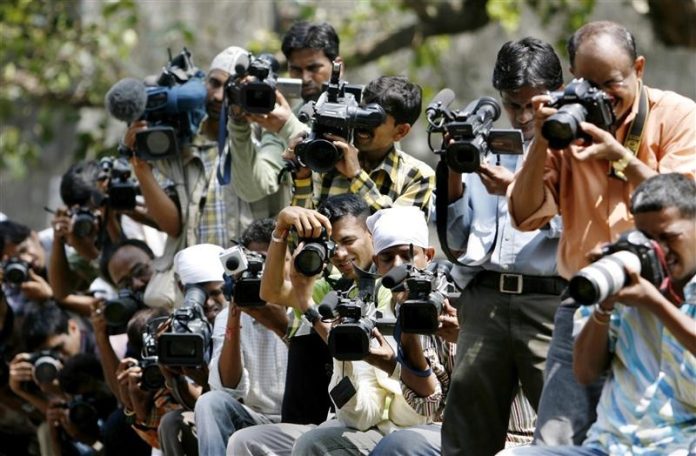In an era defined by the omnipresence of media, the dissemination of hatred has found new avenues to fester and spread. This column delves into the urgent question: “What should be our response to media spreading hate?” Through diverse perspectives, including those of a seasoned journalist, a technology consultant, and an academic, we explore strategies to counteract hate-driven narratives and safeguard the truth.
– SYED AHMED ALI

In the face of hate-propagating media, a proactive and strategic response is imperative. Our foremost task is meticulous fact-checking to discern genuine news from fabricated narratives. When hate or misinformation is identified, swift and resolute counteraction becomes essential. This encompasses all forms of media, including images, videos, and stories, with the goal of disseminating the truth rapidly.
Such misleading reports foster misunderstandings, not only among the general public but also within the Muslim community. It is the duty of those well-versed in Islam and technology to rectify these distortions. This mission can be executed on three levels: individual efforts, collective actions by groups or organisations, and the establishment of an alternative media presence.
Consider recent instances, such as COVID-related falsehoods targeting Muslims. Verification is the initial step, followed by a compelling counter-narrative that highlights Islam’s emphasis on cleanliness. Utilising various media formats, such as posts, posters, and videos, is key.
Ongoing debates around halal practices, polygamy, divorce (Talaq), and the role of women in Islam require continuous addressing. A comprehensive educational series is necessary, elucidating these concepts and their correct interpretations. Consistently repeating the truth is pivotal, countering the age-old notion that falsehoods become truths through repetition.
Challenges arise from resurfacing videos that continue to circulate on social media. To tackle this, a resilient response strategy is essential, repeatedly reinstating the truth until false narratives lose their grip.
At the organisational level, our focus should extend to constructing a robust counter-narrative framework. This encompasses meticulous fact-checking and fostering heightened societal awareness. We counter by educating our people about the Qur’ān and Islamic teachings. Our aim is to illuminate the genuine tenets of Islam, thereby dispelling the allure of falsehood.
In conclusion, our response should focus on education and training, equipping individuals to counter misinformation effectively. This multifaceted approach neutralises the impact of hate-driven media, fostering an informed community rooted in truth.

News conglomerations are funded by capitalistic entities and to counter them, we have to go to the public domain and create secular news portals with crowdfunding.
We also need to bring secular social media influencers on a common platform and deny hatred for their creativity.
The main arsenal for spewing hatred is the fake panel discussion, which could be countered using by having our own panel discussions and diligently publishing them on various social media avenues.

Media spreading hate poses a significant threat to social harmony and peace. As consumers, the time has come for us to consciously filter information and thoughtfully share it with others. Our response to hate must be critical and vigilant. Blindly trusting or forwarding messages that are inflammatory, divisive, or biased should be avoided. Each citizen bears the responsibility of verifying sources and information accuracy before accepting or disseminating it. Furthermore, any content violating community guidelines or platform terms of service should be reported or flagged.
Educating ourselves and others about the detrimental effects of hate speech and media on individuals and society is a vital precaution. Additionally, prioritising the promotion of media literacy and awareness among students and senior citizens, who are in the nascent stages of their technological engagement, is imperative.
Counteracting hate speech and divisive media with positive messages and actions that celebrate diversity, tolerance, and solidarity can alleviate the situation to a considerable extent. Our virtual voice serves as a potent tool and platform to amplify the voices of those marginalised, oppressed, or discriminated against. Supporting and participating in initiatives that foster dialogue, reconciliation, and cooperation among diverse groups and communities, while demanding accountability and regulation from both the media industry and the government, constitutes a practical response to the spread of hatred.
We find ourselves at a juncture where hate can easily persist, and truth has become somewhat elusive. However, in my opinion, the ultimate countermeasure lies in a shift of power.




